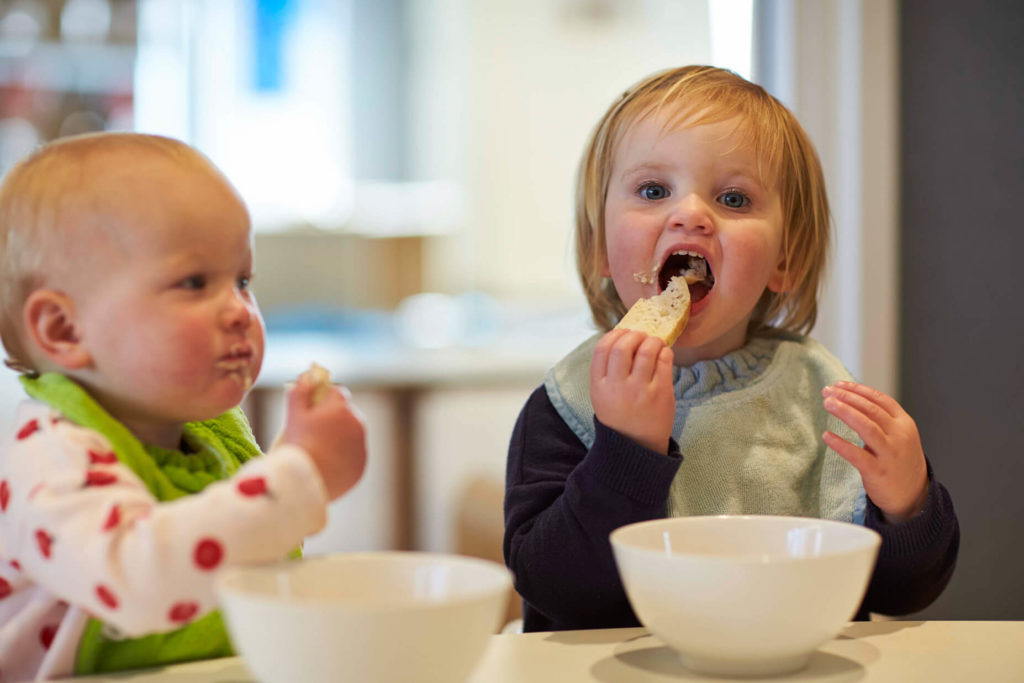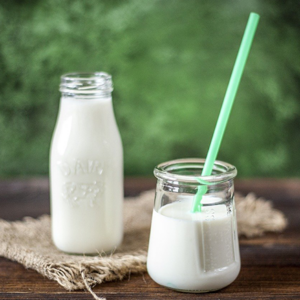The Importance of Good Gut Health in Children


Learn more about how to support good gut health in children. Gut health has become a hot topic in recent years and the discussion is usually about gut microbiome which are the trillions of bacteria that live inside our gut. These bacteria play a key role in keeping children mentally and physically healthy and also reduce the risk of illness and disease. Symptoms of a poorly functioning gut include uncomfortable digestion, stomach aches, poor nutrient absorption, poor immunity and sleep, mood fluctuations and general fatigue. All can have a detrimental impact on children.
The gut microbiome is established in the early years of life. It’s particularly important to support your child’s gut microbiome to thrive while they’re growing. In fact, it is believed that before the age of four or five children’s microbiome remains flexible. This is a great time to build a strong and healthy gut health in children. Beyond this age the microbiome is harder to change as it becomes well established. Everyone’s microbiome is unique and, interestingly, diet can be responsible for up to 75% of this variation!

What are the Functions of the Gut?
The gut has many important functions such as:
- aiding digestion
- the absorption of nutrients
- waste removal
Your gut also influences the immune system which is needed to fight off bugs, and communicates with the rest of the body, particularly the brain!
Absorption of Nutrients
We absorb almost all of our nutrients through the gut. As a result, children get the most nutrition out of the food they’re consuming when they have a healthy gut. The key nutrients absorbed in the gut are Iron, proteins, carbohydrates and fats. These nutrients are crucial for growing bodies.
Elimination of Waste
The gut removes waste from the body. This is important to help support liver function. So, to keep your child’s bowel movements regular (and prevent uncomfortable constipation), encourage a diet with plenty of fibre. For instance, include wholegrains, veggies and fruit in their diet. This will keep the bowels regular and also feed the healthy gut bacteria. Water is also important to help keep bowel movements soft and regular.
The Immune System
The gut is home to 70% of the body’s immune system. It is also the main entry point for bugs to get into the body. Therefore, if your child’s gut is not a strong barrier they will be more likely to pick up nasty bugs. This can lead to illness. Research suggests that a poor balance of bacteria in the gut during early childhood can increase risk of gut-related allergies like asthma and eczema. You can help build your child’s immunity by fueling the good bacteria in their gut. This will, in turn, keep children feeling energetic and healthy.
The Gut-Brain Axis
The Gut-Brain Axis is the physical and chemical connection between your gut and your brain. To clarify, it is a network of millions of nerves sending messages both ways. Chemicals called neurotransmitters, such as serotonin and GABA (which controls feelings of fear and anxiety), are sent to and from the brain. Many of these are produced in the gut. A thriving, healthy gut microbiome contributes to production of chemicals and signalling messages for good mental and physical health in your child.
Signs of Poor Gut Health in Toddlers
Signs of poor gut health in toddlers include:
- Constipation – huge, hard stools, small pebbles and infrequent bowel movements
- Diarrhea
- Tummy pain
- Bloating and gas
- Difficulty gaining weight or growth delay
- Insatiable appetite
- Foul breath
- Poor sleep
- Aggressive behaviour and/or irritability
What Foods are Good for Gut Health?
There are many ways to boost gut health and build a strong microbiome. You can start by eating a diet high in a variety of probiotics and fibres such as prebiotic foods.
Benefit of probiotics in toddlers
Probiotics are the “healthy” bacteria that make up the gut microbiome. Probiotics work to maintain health and immunity. They also fight inflammation and disease. You can boost the good bacteria in a child’s gut by feeding them probiotic rich foods. Good bacteria can help to form a strong, healthy microbiome. A probiotic supplement is also an option.
Some great child-friendly probiotic rich foods include:
-
Yoghurt: Be sure to look on the label for brands containing ‘live cultures’. If your child doesn’t like eating yoghurt, try blending it into a smoothie
-
Kefir: This is a fermented milk drink. Kefir tastes a bit tangy and with a thicker consistency than milk but is not quite as thick as yogurt. It can be served alone or mixed with fruit for a healthy breakfast smoothie
-
Fermented vegetables: Think pickles and sauerkraut!
-
Tempeh: This is a high protein meat substitute made from fermented soybeans.

Fibre for Kids
Your child’s diet should contain fibre as an essential component. It is required to achieve good gut health in children and different fibres help the gut in their own unique ways.
While we often think of fibre as a singular nutrient there are actually many different types, for example:
What are the different types of fibre?
-
Insoluble fibre: Wholegrain breads and cereals and the skin of fruit and vegetables help to soften bowel content, promoting regular (and comfortable) bowel movements.
-
Resistant starch: This is a type of fibre which is not digested as normal by the body. Resistant starch is found in wholegrain cereals, legumes and starchy vegetables like potato. It travels to the large intestine where it feeds good bacteria in the gut. These good bacteria produce what you need for a healthy digestive system and protection against disease.
-
Prebiotics: These are another type of fibre which also feed the friendly bacteria in the gut. This provides another nourishing food source to the healthy bacteria in your gut. The great news is prebiotics are found in foods that are very child-friendly and delicious. Think bananas, apples and oats plus foods that are easy to sneak into meals like barley, onion or flaxseed.
-
Soluble fibre: These help to slow the emptying process in the stomach, which can help children to feel fuller for longer. Soluble fibre is found in fruits, vegetables, oats, barley and legumes.
Long term benefits of good gut health in children
Investing in your child’s gut health in their early years will not only improve their overall health in the short term but will also set them up for good health later in life!
For more popular articles, read:
Toddlers & Constipation: What Can You Do? | Only About Children (oac.edu.au)
Top Tips to Encourage Independence in Children
Brain Boosting Foods for Children – Only About Children (oac.edu.au)
Building Your Relationship With Your Child | Only About Children (oac.edu.au)
Only About Children can help your child to grow, make friends and explore the world.
Only About Children can help your child to grow, make friends and explore the world.
Related Reads


The New Kinder Yard Is Open at OAC Camberwell
Our new Kindergarten outdoor space at OAC Camberwell is officially open. Designed for adventure, creativity and connection with nature, it is already inspiring big play and curious minds.

Step-by-Step Guide To Introducing Allergenic Foods To Your Baby
Our in-house Dietitians share a step-by-step guide to help you introduce allergenic foods to your baby safely, giving them the best possible chance of being food allergy free.
